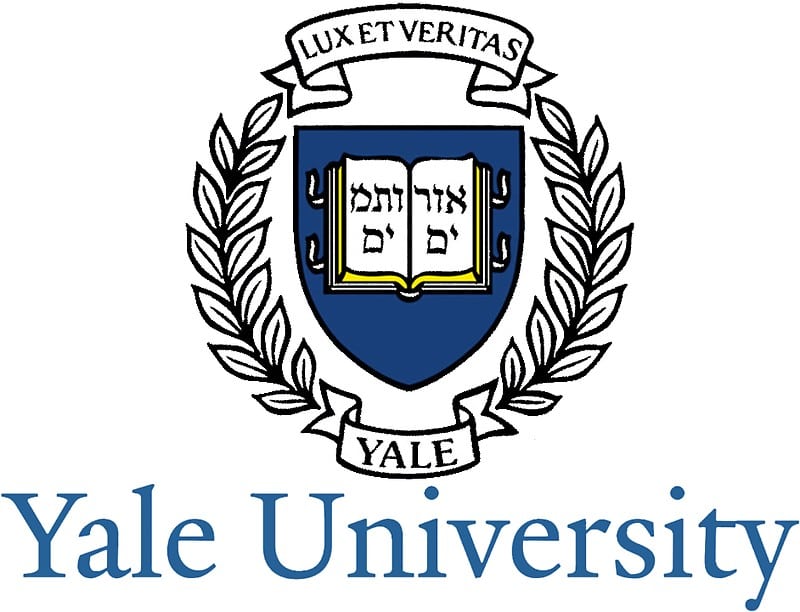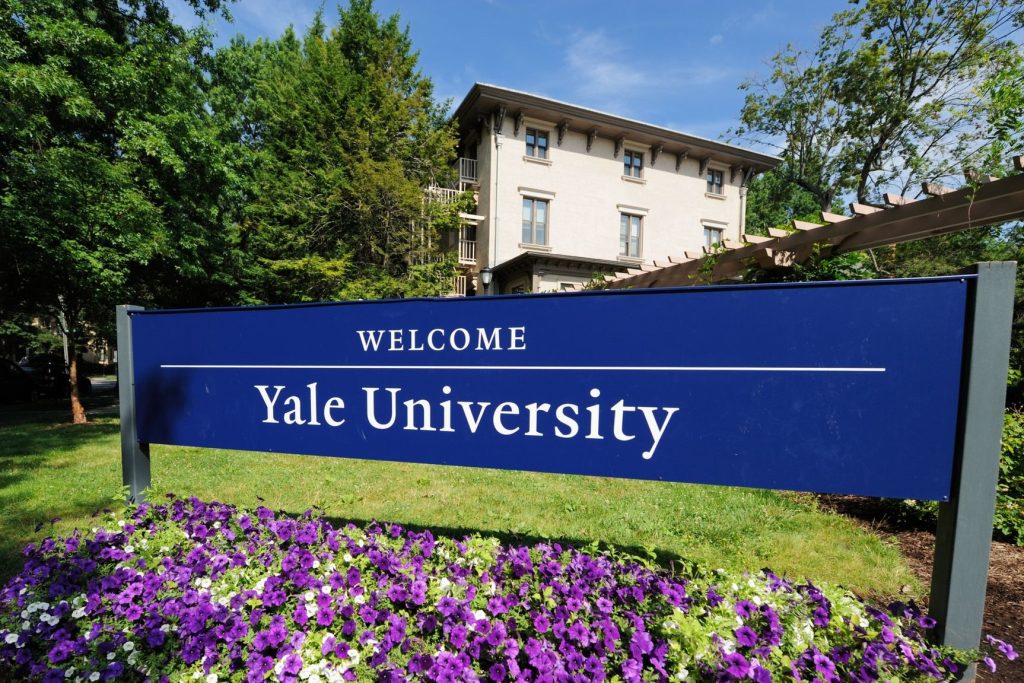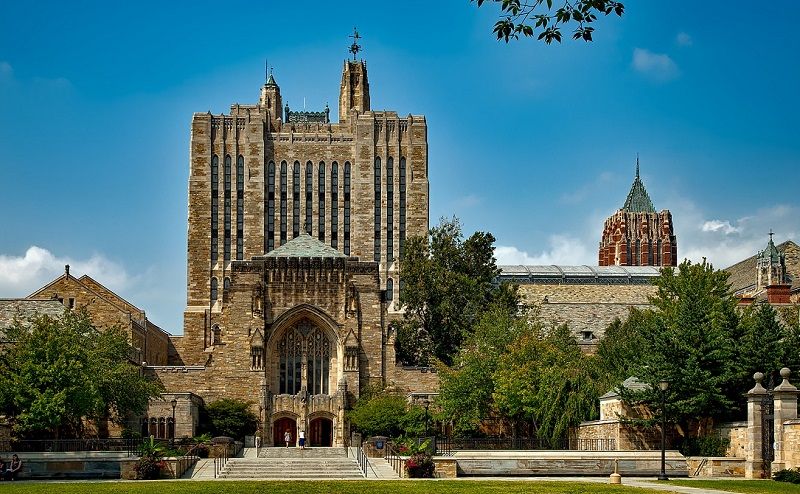Qui la lettera in italiano
AFeVA Casale Monferrato
March 10, 2022

Dear Prof. Adams and Members of the Committee,
Our community of Casale Monferrato, Italy, wishes to address you on the matter of Yale’s gift acceptance procedures. The reason for our interest is that we have been deeply hurt by the fact that the man who knowingly destroyed the natural environment of our community and that of many other communities around the world, the man who knowingly caused many thousands to die prematurely of a rare asbestos-specific cancer (mesothelioma) in the 1970s and ever since, was able, in 1996, to donate his way to an honorary doctorate from Yale University which honored him specifically for his “stewardship of the global environment.” The gift policy you design for Yale’s future must learn from this spectacular miscarriage of justice and must ensure that nothing like this can ever recur.
Our town of 35,000 in the Italian countryside had a giant asbestos factory for 80 years that has so far caused about 3,000 deaths among workers and residents. The plant was one of many around the world owned by Eternit Company, based in Switzerland. The Swiss owner-CEO from 1976 until the Italian Eternit plants were closed in 1986 was Stephan Schmidheiny. In the 1980s and 1990s, Italian Eternit executives were charged with criminal negligence because of many criminal violations of the Health and Safety Law at Work. Mr. Schmidheiny saw that bans on asbestos were proliferating and started selling and closing asbestos factories and mines around the world. Anticipating that the Italian legal system would catch up with him, too, Schmidheiny went about rebranding himself as a “green” businessman.

As he was selling off the last of the asbestos plants and mines, Schmidheiny attended the 1992 Earth Summit as the “World Business Council for Sustainable Development” and co-authored a book with other business executives on sustainable development. He secured the support of William Reilly, former EPA Administrator and Yale alumnus. Reilly led an effort to get Yale to award Schmidheiny an honorary Doctorate of Humane Letters for promoting “stewardship of the global environment” in 1996. The Avina Foundation created by Schmidheiny gave Yale funds for programs on sustainable development in 1996-1997. This was noted in press releases. Nothing else has come out about Schmidheiny’s gifts to Yale.
As he was selling off the last of the asbestos plants and mines, Schmidheiny attended the 1992 Earth Summit as the “World Business Council for Sustainable Development” and co-authored a book with other business executives on sustainable development. He secured the support of William Reilly, former EPA Administrator and Yale alumnus. Reilly led an effort to get Yale to award Schmidheiny an honorary Doctorate of Humane Letters for promoting “stewardship of the global environment” in 1996. The Avina Foundation created by Schmidheiny gave Yale funds for programs on sustainable development in 1996-1997. This was noted in press releases. Nothing else has come out about Schmidheiny’s gifts to Yale.
Within a few years, Schmidheiny was charged by the Italian Criminal Courts with causing an environmental disaster. The trial revealed records of Schmidheiny holding two damage-control training conferences for his European managers upon becoming CEO in 1976. The managers were instructed how to respond to questions about asbestos and health from the public, unions, and the media with the clear intention to manipulate information: by avoiding or denying the dangers of asbestos in the processes and manufacturing in the various Casale Monferrato operations, by the technical and staffing shortcomings, by not meeting standards required by the criminal labor law of the land, and by the inadequacy, incompleteness and delays of the improvements introduced before the closure. Furthermore, the case proved the lack of protection measures outside the plants (community) which caused unspeakable damage to the people of Casale Monferrato and neighboring municipalities, given the incredible environmental exposure of thousands and thousands of unaware members of the community. This explains the impressive number of mesothelioma deaths still continue at the rate of about one a week .
In the course of the trial evidence of the hygiene and environmental working conditions were revealed and acquired by the court. Other evidence showed that virtually nothing had been done to protect workers and the Casale environment from wanton exposure to asbestos dust. In 2012, Schmidheiny was convicted of creating an environmental disaster; the conviction was affirmed in 2013 by the Court of Appeal, which sentenced Schmidheiny to 18 years in jail and condemned him for delaying the ban on asbestos in Italy by 10 years. The verdict was quashed by the Court of Cassation on the statute of limitations. Schmidheiny was then charged with murder which no statute of limitations. After various appeals, the courts rules that there would be trials in each of the four regions where the deaths related to plants occurred.
In 2013 , our community and the Municipality of Casale approached Yale to rescind its honorary degree. Yale alumni began supporting this effort, too, writing to President Salovey, over the next six years. Fifty-three Yale alumni, most from the Class of 1964, urged President Salovey in 2014 to consider revoking the honorary degree to a convicted felon who for profit had caused major damage to the environment and atrocious suffering to thousands and thousands of members of the community and workers. Similar pleas were sent by the Mayor of Casale Monferrato, Concetta Palazzetti, and mayors of thirty-four smaller Italian municipalities greatly harmed by Eternit. Yale defended its honor to the “businessman, philanthropist, and environmentalist“ and told the New Haven Register the honorary degree would not be reconsidered. Yale Professor William Burch told the Register that Yale’s refusal to deal with this issue undermined the moral authority of the university, whose motto is Lux et Veritas. Yale Professor Thomas Pogge told the Yale Daily News “He quite deliberately was trying to make it harder to indict him for environmental misconduct. He also gave money to the university.”

Yale at first told us that no honorary degree had been rescinded in over 300 years. Then, in 2018, Yale summarily withdrew the honorary degree to actor Bill Cosby upon his conviction as a sexual predator, but still refused to act on Schmidheiny’s conviction for manslaughter in Turin in 2019. https://yaledailynews.com/blog/2019/06/06/alumni-challenge-schmidheinys-degree-during-reunion-weekend/
Yale’s justification for refusing to even determine whether the honorary degree should be rescinded was ignorant, at best: “The proceedings in Italy do not provide a basis for [Yale] board action because criminal trials in absentia do not meet U.S. standards of due process.” Schmidheiny has spent at least 10 million Euros a year here on lawyers and has always been represented in Italy by skilled and famous lawyers. His failure to ever attend any Italian court hearing and defend himself was his choice and his choice alone. His absence can in no way be blamed on the Italian prosecutors and the courts. Schmidheiny could still attend the two criminal trials against him and (underway) – given he is accused of voluntary murder of hundreds and hundreds of workers and members of the community. Trials are being held in Court of Assizes in Novara (400 deaths for Casale Monferrato), the court of Assizes of Naples (for the Bagnoli plant) . The two cases of manslaughter (Cavagnolo cases) for which he was sentenced to four years in 2019 is currently being heard by the Court of Appeal of Turin (defendant’s appeal) . He would even now be free to come and go, both during trial and while his convictions are being appealed.
One of the documents that Italian prosecutors seized at the Milan public relations firm Schmidheiny hired in 1984 was a memo dated 1992. It recalled that their strategy had been to confine all responsibility for asbestos deaths in Italy to the Italian managers and the, by then, empty-shell Eternit company that had owned all the asbestos plants and mines. A flow chart showed these as Levels 1 (Itaian management) and 2 (Eternit managers) of 4. Anova, the Swiss entity that accumulated the wealth from Schmidheiny’s sale of the asbestos properties, was Level 3, and Stephan Schmidheiny himself was at the top, level 4. The strategy was to not even mention levels 3 and 4 in protecting them from having any responsibility and liability in Italy. We can think of only one reason for Yale’s protracted “Level 4” protection of the asbestos billionaire from having to face dishonor or responsibility for corporate crime with asbestos in Italy.
When closing down his dangerous plants in the 1980s, multi-billionaire Schmidheiny faced a very serious, very obvious question: am I going to spend money on making these sites safer or am I just going to abandon them to fate, leading to expected and foreseen deaths from exposing the local population to horrendous health risks? At that time, and at every moment thereafter, he made a deliberate choice against doing the responsible thing, against cleaning up the mess from which his family had earned a vast fortune, and in favor of greenwashing, in favor of buying himself a reputation as an environmentalist. Perhaps he made this decision because it was cheaper and financially more advantageous. But he was probably even more strongly influenced by the nature of the two paths: the unglamorous cleanup of contaminated sites in some Italian towns versus rubbing shoulders will the high and mighty at Yale and in Brazil. He opted for the latter course, unsurprisingly. But he could easily have done both. He did not because he felt that his bought reputation as a global steward of the environment protected him from having to clean up his mess.
In this way, Yale’s deeply defective gift policy objectively contributed to thousands of deaths Schmidheiny caused and which are still occurring around the world. Yale sold Schmidheiny a comfortable escape from his responsibility to the people of Casale Monferrato and the other devastated communities. These communities were sold out by Yale and not merely by Stephan Schmidheiny. We deeply regret this.
Your committee should consider all ways in which donors might want to extract rewards for their donations. Examining the Schmidheiny case is clearly warranted. In the light of the story briefly described we hope you will understand the importance reexamining Schmidheiny’s case has for us, in particular the record of financial gifts to Yale by him, Avina Foundation, and other entities he controls. A reasonable gift policy must be one that excludes a case like that of Schmidheiny’s honorary degree.
New Haven attorney Christopher Meisenkothen and public health worker Dr. Barry Castleman have represented us in dealing with Yale and spoke about the issue at a seminar at Yale Law School on February 10, 2016. Dr. Castleman testified for Casale as an expert witness in the environmental disaster case and can provide further details and documents.
The President of AFeVA
Giuliana Busto





